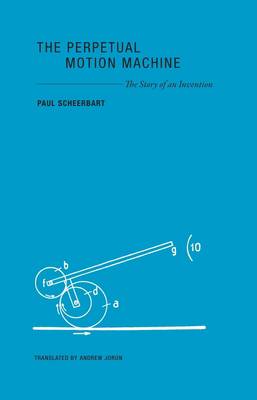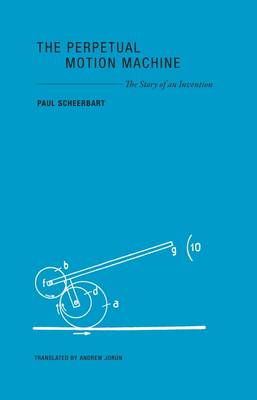
Door een staking bij bpost kan je online bestelling op dit moment iets langer onderweg zijn dan voorzien. Dringend iets nodig? Onze winkels ontvangen jou met open armen!
- Afhalen na 1 uur in een winkel met voorraad
- Gratis thuislevering in België vanaf € 30
- Ruim aanbod met 7 miljoen producten
Door een staking bij bpost kan je online bestelling op dit moment iets langer onderweg zijn dan voorzien. Dringend iets nodig? Onze winkels ontvangen jou met open armen!
- Afhalen na 1 uur in een winkel met voorraad
- Gratis thuislevering in België vanaf € 30
- Ruim aanbod met 7 miljoen producten
Zoeken
€ 16,45
+ 32 punten
Omschrijving
In the last days of 1907, the German novelist and exponent of glass architecture Paul Scheerbart embarked upon an attempt to invent a perpetual motion machine. For the next two and a half years he would document his ongoing efforts (and failures) from his laundry-room-cum-laboratory, hiring plumbers and mechanics to construct his models while spinning out a series of imagined futures that his invention-in-the-making was going to enable. The Perpetual Motion Machine: The Story of an Invention, originally published in German in 1910, is an indefinable blend of diary, diagrams and digression that falls somewhere between memoir and reverie: a document of what poet and translator Andrew Joron calls a "two-and-a-half-year-long tantrum of the imagination." Shifting ambiguously from irony to enthusiasm and back, Scheerbart's unique amalgamation of visionary humor and optimistic failure ultimately proves to be a more literary invention than scientific: a perpetual motion of a fevered imagination that reads as if Robert Walser had tried his hand at science fiction. With "toiling wheels" inextricably embedded in his head, Scheerbart's visions of rising globalization, ecological devastation, militaristic weapons of mass destruction and the possible end of literature soon lead him to dread success more than failure. The Perpetual Motion Machine is an ode to the fertility of misery and a battle cry of the imagination against praxis.
Specificaties
Betrokkenen
- Auteur(s):
- Uitgeverij:
Inhoud
- Aantal bladzijden:
- 112
- Taal:
- Engels
Eigenschappen
- Productcode (EAN):
- 9780984115549
- Verschijningsdatum:
- 31/05/2011
- Uitvoering:
- Paperback
- Formaat:
- Trade paperback (VS)
- Afmetingen:
- 113 mm x 182 mm
- Gewicht:
- 131 g

Alleen bij Standaard Boekhandel
+ 32 punten op je klantenkaart van Standaard Boekhandel
Beoordelingen
We publiceren alleen reviews die voldoen aan de voorwaarden voor reviews. Bekijk onze voorwaarden voor reviews.











